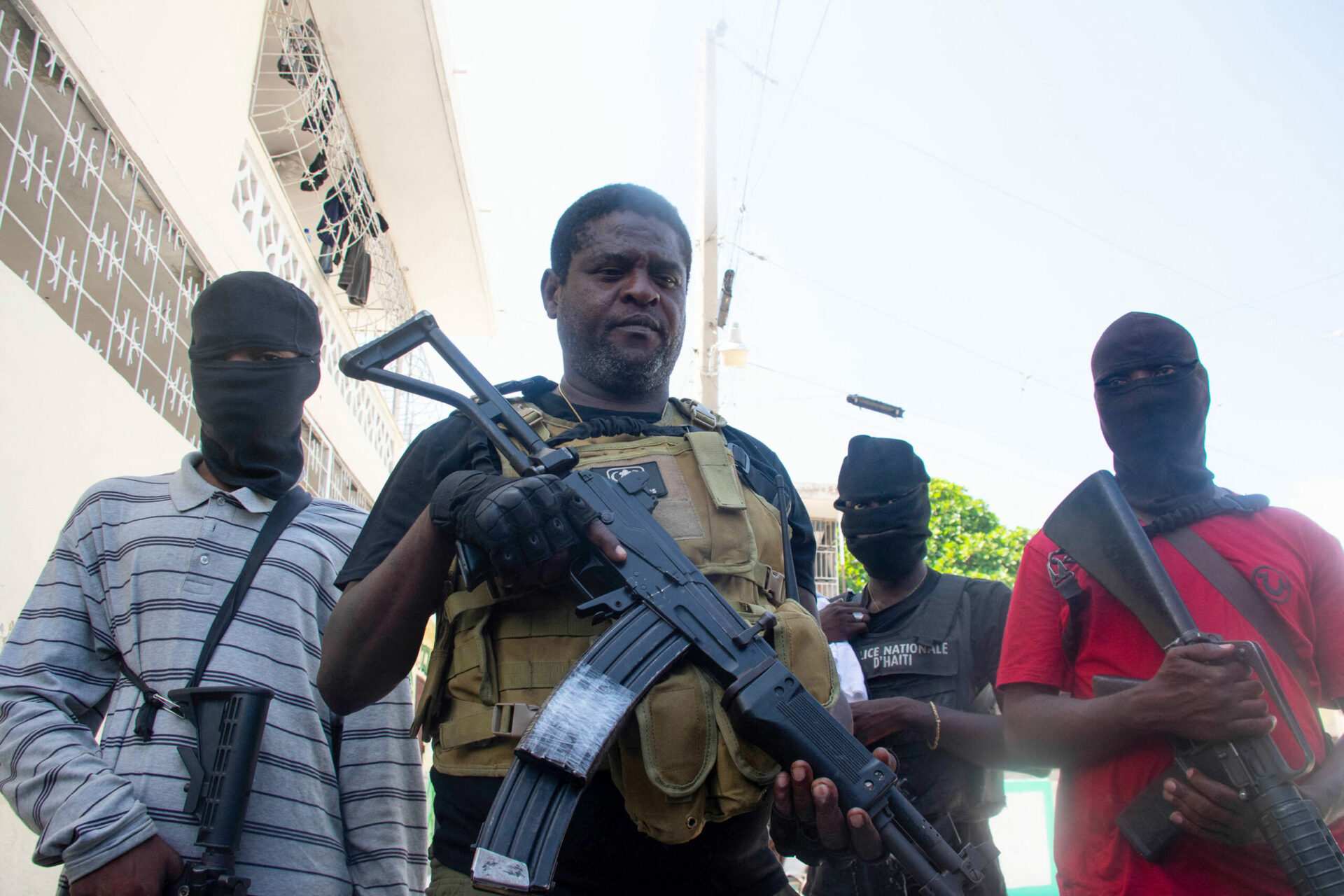In a glaring example of the Biden administration’s failure to adequately address international crises, U.S. Marines were urgently deployed to Haiti under the cover of darkness to bolster embassy security and facilitate the evacuation of nonessential personnel. This drastic action was necessitated by the rampant violence and chaos unleashed by heavily armed gangs, effectively transforming Port-au-Prince into a war zone. The operation, executed at the behest of the State Department, underscores the dire situation in Haiti, yet also highlights a reactive rather than proactive approach to foreign policy under Democratic leadership.
“The airlift of personnel into and out of the embassy is consistent with our standard practice for embassy security augmentation worldwide, and no Haitians were on board the military aircraft,” according to a statement from the U.S. Southern Command. This operation, while necessary for safety, begs the question: Why is the Biden administration always on its back foot in international affairs?
Residents reported unsettling sounds of aircraft preceding this middle-of-the-night operation, signaling yet another international embarrassment for an administration already riddled with them. It’s been divulged that President Joe Biden personally directed this mission – a rare acknowledgment of direct involvement that does little to assuage concerns over his handling of international crises.
“President Biden approved the operation,” confirmed a National Security Council official. “He has been briefed, receives updates from his team, and is deeply concerned about the situation in Haiti.” Concern is one thing; effective action is another entirely.
The backdrop to this emergency airlift is a city besieged by gang violence, with these criminal elements demanding Prime Minister Ariel Henry’s resignation and exerting control over more than 80% of Port-au-Prince. Their audacity has escalated to coordinated attacks on government institutions and key infrastructure including airports – paralyzing international flights into Haiti.
In response to this escalating violence, Haiti extended a state of emergency and curfew while deploying its nascent army alongside police forces – efforts supported by U.S. ammunition supplies but evidently insufficient against the gang onslaught.
Despite these challenges, it’s clear that Biden’s preference leans towards minimal engagement; he has previously “ruled out sending U.S. troops” directly into Haiti’s fray. Instead, an international support mission led by Kenya was greenlit by the United Nations after extensive U.S. campaigning – yet another move showcasing reliance on others rather than decisive American leadership.
Frustratingly, even this half-measure is stymied by bureaucratic inertia and lackluster international funding – with Republican lawmakers notably holding back support amid valid concerns over mission clarity and effectiveness.
Assistant Secretary of State for Western Hemisphere Affairs Brian Nichols lamented funding delays as critical time wasted where “every day matters” for Haitians’ welfare – an ironic statement given his administration’s sluggishness in addressing such urgent issues head-on.
The Southern Command insists that despite these evacuations, their focus remains on supporting Haitian people through various means including expediting security missions and advocating for peaceful power transitions through elections.
“As announced in September 2023, the Department of Defense is postured to provide robust enabling support for the MSS,” Southern Command stated — yet words without substantial action or funding ring hollow as Haiti descends further into chaos under Democrat watch.
Source: American Military News

